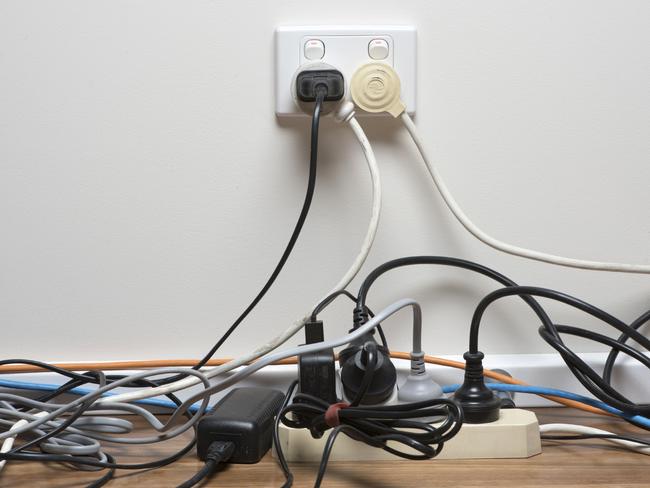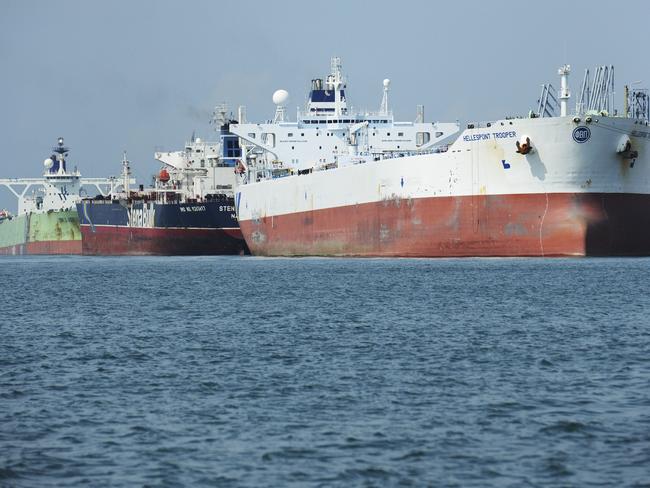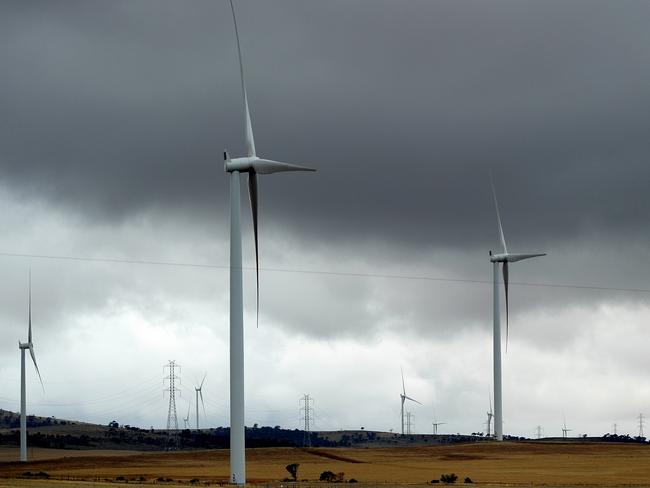Piers Akerman: Australia’s energy security is the greatest threat to our survival
THE greatest threat to our security is not Islamic State, it’s not African gangs, it’s not even the drug-addled Islamist idiots targeting pedestrians — it’s the failure to ensure our own energy security, Piers Akerman writes.
Opinion
Don't miss out on the headlines from Opinion. Followed categories will be added to My News.
THE greatest threat to our security is not Islamic State, it’s not African gangs, it’s not even the drug-addled Islamist idiots targeting pedestrians.
No, the clear and present danger to the nation comes from the failure to ensure our own energy security.
Australia is the ninth-largest energy producer in the world with massive renewable and non-renewable energy resources yet it can’t guarantee energy supply to its industries and domestic users.
This is a failure of policy at both state and federal levels caused by supine subservience to the faddish global warmers.
Forget renewables and batteries, like South Australia, which relies on huge diesel back-up or the pie-in-the-sky pumped hydro that requires more power than it produces to keep its reserves ready.
We just aren’t tapping our reliable coal or uranium reserves as we should be.
That’s why we must rely on imported fuel to exist as a nation and why we are hostage to others.

Not only are we heavily dependent on imported refined petroleum products and crude oil to meet day-to-day demands, we rely on foreign ships to deliver this economy-sustaining energy and we aren’t meeting our international obligation to hold a 90-day supply in reserve.
We are the only nation that doesn’t meet this International Energy Agency reserve threshold and we hold less than half the required fuel volumes.
We invest around $30 billion a year in defence but that’s meaningless if we can’t provide necessary energy security.
A recent study estimated that the less than 45-day reserve of fuel would mean that food supply transport would run for about nine days, pharmaceutical supplies would be hit in three and the military might have fuel for 17.
One of the legends of the Australian maritime industry, Captain Harry Mansson, pointed out even the name Australian National Line — ANL — has been sold to French interests and is headquartered in Marseilles.
Captain Mansson has suggested that Australia move towards becoming independent of foreign transporters by purchasing four second-hand Very Large Crude Carriers of about 300,000 DWT each, about five years old and with European-standard accommodation for our Australian crews, with the promised union acceptances before anything is finalised.

He said such ships average about 15 years of unrestricted trade, so the five-year age would give us 10 years with the four ships alone. Allowing one month for a round trip they would make 48 trips annually between them, carrying some 14 million tonnes of fuel, which is about 41 per cent of the total.
Unfortunately, his attempts to communicate with the government have been frustrated whereas Opposition leader Bill Shorten has opened a dialogue.
This is interesting but don’t expect too much from Shorten who is reliant for survival on the votes of the militant Maritime Union of Australia, whose totally unrealistic demands on wages and conditions for its members were instrumental in killing Australian commercial shipping.
Captain Mansson said that as we are an island nation it is critical that Australia has its own flagged fleet in times of crisis, on which we can rely to handle our crucial imports.
Notwithstanding the history of the bloody-minded maritime unions, Shorten is determined to make political capital with his calls for a new Australian shipping industry.
“It was for these economic, national security and environmental reasons that the former federal Labor government was so determined to rebuild Australia’s shipping industry following years of neglect,” he told Mansson.
“For Australian shipping companies the package included a zero tax rate, more generous accelerated depreciation arrangements, rollover relief for selected capital assets, new tax incentives to employ Australian seafarers and an exemption from the Royalty Withholding Tax for ‘bareboat’ leased vessels.
“To further strengthen the local industry, an International Shipping Register was created, allowing operators of Australian-flagged vessels to employ mixed Australian and foreign crews on internationally agreed rates and conditions.

“These measures were based on the extensive reform programs that had already been implemented by other maritime nations including the United Kingdom, Japan, China and Denmark.
“Importantly, Labor’s changes did not preclude the use of foreign vessels. They simply required firms needing to move freight between Australian ports to first seek out an Australian operator. When none were available, foreign vessels could be used so long as they paid Australian-level wages on domestic sectors.
“However, for Labor’s suite of reforms to work, they needed time. Unfortunately, even before they took effect the Coalition sought to undermine them. Their attacks were calculated to create uncertainty and doubt in the minds of those considering investing in the Australian industry as to the durability of the regulatory changes and the new tax incentives. All of us want to reduce the cost of doing business in Australia — but not at any cost. Particularly if that cost is the destruction of a strategically significant industry and the loss of a highly skilled workforce — and that’s precisely what the Coalition’s 2015 legislation would have done. The legislation put ideology ahead of the national interest.”
National interest was never foremost in the minds of those running the union movement however, as the sabotage of war matériel and undermining of the war effort during WWII demonstrated.
Unless we act to provide security for fuel we will be unable to access the resources the health industry relies on; food production and distribution would halt, few businesses could operate.
Personal and public transport wouldn’t function, defence force operations would be severely restricted. Our society would be paralysed.
We cannot afford to be held hostage by the union movement as we have been in the past or by foreign interests.
The Coalition must demonstrate leadership now and present a realistic strategy for energy independence.



